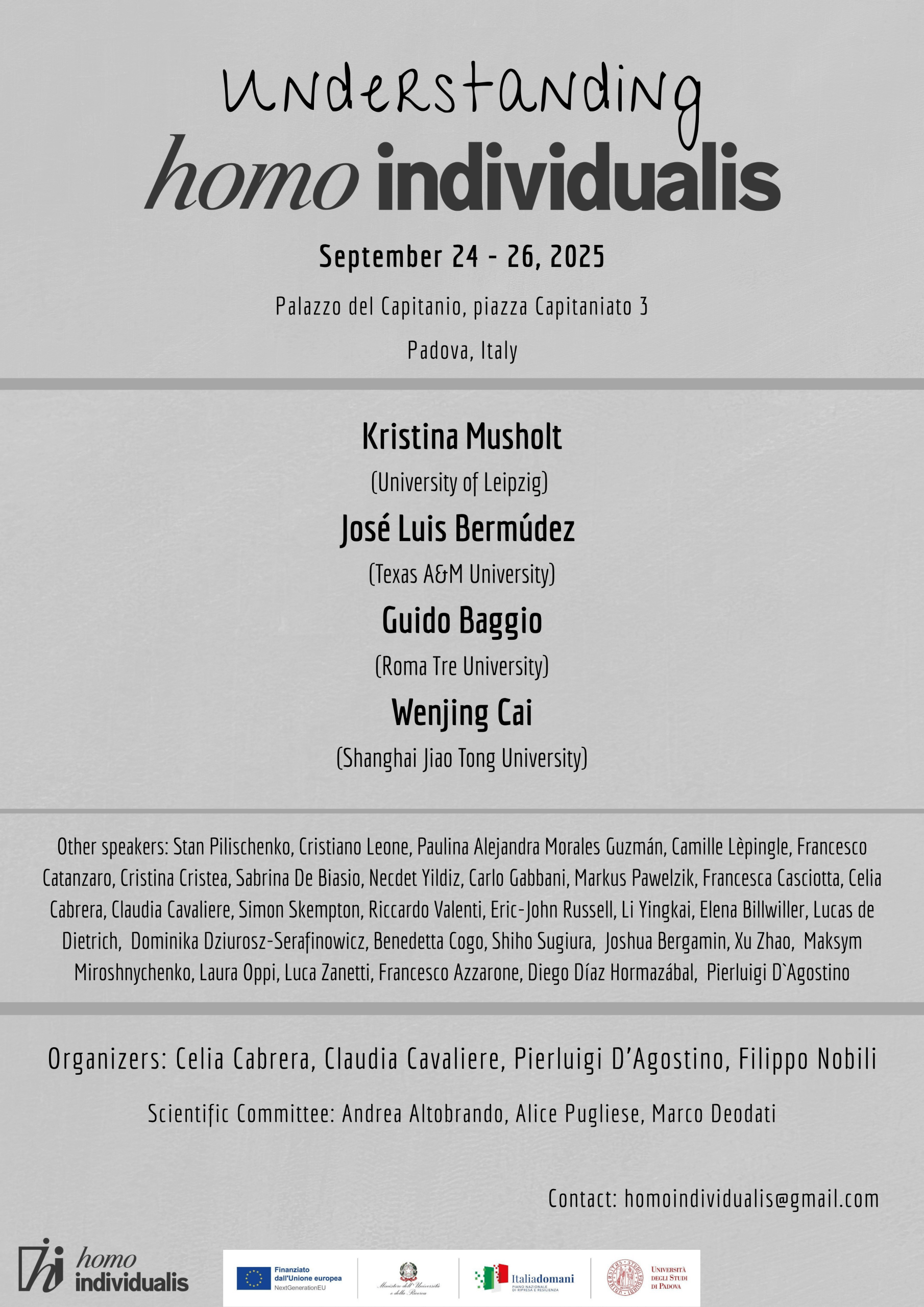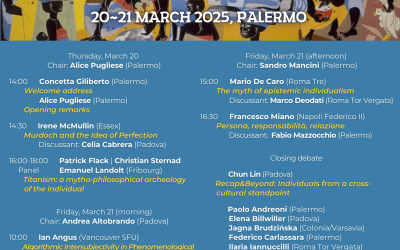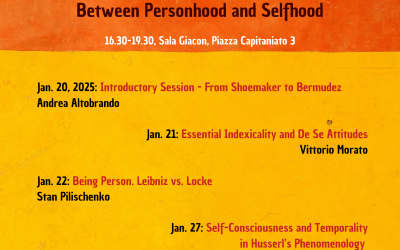The research project “Understanding Homo Individualis” takes homo individualis to stand for a conceptual structure accounting for the intrinsic individuality of human beings, this individuality being essentially irreducible to physical, biological, mental, or sociological determinations. The purpose of the conference is to stimulate discussion among scholars of a variety of philosophical orientations regarding the consciousness of one’s own individuality, thereby contributing to the current theoretical and practical debates.
homo individualis is a kind of sub-species of human animal whose members are conscious of themselves as something unique, irreducible to mere physical, biological, mental, or social factors, and inherently valuable in their particular individuality.
The ‘Homo Individualis’ project posits that members of this cultural species are the real or ideal protagonists of ‘modern’ societies and many of their fundamental institutions (freedom of expression, freedom of thought, human rights, etc.). The project aims to investigate the structure of self-consciousness that characterizes these entities, understand its conditions of possibility, and identify its socio-ethical-political implications and horizons.
Events
Research Outputs
Limited Access
by Andrea Altobrando
—
In this article I try to illustrate the reasons why Husserl included such a metaphysically challenging concept as the monad in his phenomenology. I will first offer a brief historical reconstruction of that path that led Husserl to such an introduction, and then focus on some key features of the Husserlian monad (immortality and unbornness, epistemic substantiality, plurality of monads, and uniqueness of the objective world). I will finally turn to a reflection concerning the phenomenological tenability of Husserlian monadology and weigh its merits and shortcomings.
Monad, as a Concept in Phenomenology
by Andrea Altobrando
—
Encyclopedic entry that outlines the conceptual journey that led Edmund Husserl to introduce the concept of monad in his phenomenology. The article highlights how this introduction aimed to achieve a systematic view of what is revealed when rigorously adopting the phenomenological perspective. However, the entry also sheds light on the limitations, aporias, and derailments associated with this concept. This exploration provides a critical examination of the monad’s role and implications in phenomenological thought, offering insights into both its potential and its problematic aspects when one tries to consider the ontological implications of the results obtained through a phenomenological stance.
A Phenomenological Assessment of Mulla Sadra’s View of the Individual Mind
by Gholami, T. & Altobrando, A.
—
This article explores Mulla Sadra Shirazi’s theory of mind through a phenomenological lens, focusing on the human mind’s relationship with the body. While Mulla Sadra’s ideas align with Husserl’s monadological-phenomenological reflections, we argue that strict phenomenological methodology cannot accommodate the metaphysical implications of his framework, particularly the mind’s connection to a divine reality. By comparing Mulla Sadra’s thought with Husserlian monadology, we illuminate key aspects of Husserl’s approach and reveal the limitations of phenomenology in addressing purely metaphysical questions.
Resources for researchers
The Phenomeno-Logic of the I. Essays on Self-consciousness
Hector-Neri Castañeda is recognized as one of the most important philosophers of the late-twentieth century. Here readers will find a lively introduction to Castañeda's thought as well as an opportunity to explore his rich and distinct voice. This unique volume will...



